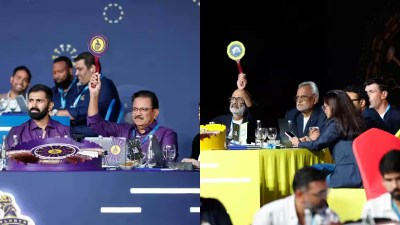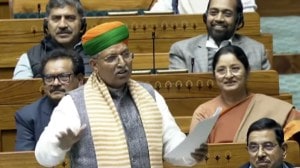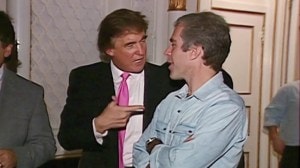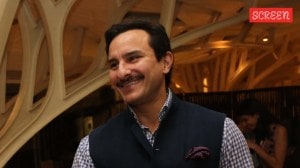At crossroads, India cries out for inclusive leadership
After three years of the Modi mandate, India stands at a fork in the road.
 RSS workers during a route march (Representational)
RSS workers during a route march (Representational)
We are at a pivotal moment in independent India’s history. In the grip of mediocrity in politics, India is crying out for better and genuine political leadership. It is witnessing a frightening rise in narrow nationalism of religion, ethnicity, language, caste and regions. The rest of the world is experiencing similar tensions. Brexit was a clear example of the narrow nationalism voting to exit the European Union that had taken decades to bring together. France, Germany and several other countries also have resurgent right-wing nationalist movements and political parties just like the UKIP in Britain.
True, narrow nationalism is raising its ugly head worldwide. But it should be no cause for comfort to anyone worried about where India is headed. In the case of India with its diversity and a relatively short history of democracy, narrow nationalism and all its’ attendant poisons can’t simply be wished away or ignored; they will not go the way of the dodo bird. A new and bolder leadership is needed to guide India out of the morass it finds itself in.
This phenomenon of narrow nationalism, of retreating to the more comfortable cocoons of religions, regions, languages, castes or other differences that divide rather than unite Indians in a pan-Indian struggle is exactly what had brought about a truncated/partitioned India in 1947. The partition and the subsequent caste-based reservations came out of the same process of fragmentation of the national solidarity that the Congress under Mahatma Gandhi tried to instil and inculcate in the Indian hearts only to be defeated by the centrifugal forces of narrow nationalism based on the less than the holistic Indian identity.
After Independence the Indian National Congress failed to uphold and implement its Gandhian creed of everyone being an Indian first. With Gandhi, and to a large extent with Nehru, the uniting bond and characteristic of Indianness came first before anything else. One a religious-cum-secular soul and the other purely secular, were steadfast in their belief that India and its governmental institutions must be secular. For them secularism was not just something nice to have, but a sin qua non of the new Indian nation born on August15, 1947. Over time India slid further towards a polity increasingly divided, based on differences, be they caste, religious, ethnic, regional or linguistic. The successive Congress governments after Nehru didn’t resist the temptation of playing religious, regional, ethnic or language cards for political gain. That today’s India is in a forceful and somewhat frightening grip of identity politics has been the result of most governments after Nehru pandering to what divides Indians rather than what unites them. Some fatalistically argue it was destined to be so with centuries old and deep religious and caste traditions and scores of languages, ethnic and racial groups cohabiting and contending within its borders. But whatever the reason, the deeply rooted identity politics with dangerous fissiparous consequences is India’s current political truth and tragedy.
A permanent feature that has continued to complicate and undermine the already difficult and slow evolution of a pan-Indian identity after 1947 has been the presence of the RSS. Even during the independence movement the RSS was more preoccupied with Hindu nationalism than the Independence of India from the British Colonialists. They have not wavered from their main thrust — the ultimate creation of a Hindu Rashtra. The BJP, a child of the RSS, in or out of power, has continually toyed with narrow nationalism, often under guises such as the building of the Ram Mandir. The RSS, the fountainhead of the BJP ideology, has always been there in body and spirit to ensure its diktat is followed by the BJP. Under Atal Bihari Vajpayee, the government was influenced by the RSS too, but he ensured that it didn’t drown in the Hindutva’s saffron hue suffocating whatever was by then left of India’s secularism.
The newest incarnation of RSS-BJP regime under Prime Minister Narandra Modi is decidedly different from the government of Vajpayee. Modi, a lifelong member of the RSS, its avowed pracharak, has never apologised for not taking quick and effective measures to prevent a massacre of Muslims in Gujarat or to stop it. In fact the best he could do was say that even if one injures a dog one feels sorry. No matter how much he and his supporters wish otherwise, the congress’ clear culpability in the 1984 Sikh massacre doesn’t diminish Modi’s responsibility for his 2002 Gujarat actions and omissions; just as Congress, so has Modi been defined by the massacre under his watch.
Under Modi’s watch the BJP MPs, MLAs and ministers in various states have been on a verbal communal rampage. There has been a clear anti-Muslim communal tinge to several statements by several of them. For example, Sakshi Maharaj who many months ago encouraged Hindu women to have more children to ensure certain percentage of Hindus in the population of the country has recently blamed Muslims for an increase in the Indian population. People have been beaten up for allegedly eating beef and even skinning dead cows as part of one’s work. Many rationalists, scholars and writers have been killed, beaten and threatened. Universities such as JNU and Hyderabad have faced the communal wrath of the religious right. Bollywood stars have been brought to heel by threatening communal violence if they didn’t do what some self-appointed censors wanted done or not done in particular movies.
In the midst of all this a truly pan-Indian and a not so divisive and polarising a leader would have led by lending his/her voice to the freedom of expression, peace and harmony in the country. But Modi’s famous, some might say infamous, oratorical flourish has been found deafeningly silent and absent — completely missing in the face of a resurgent Hindutva agenda that is wreaking havoc on the secular ethos of the freedom movement and independent India. Despite his ascension to the high office of the Prime Minister of a great country he has not been able to overcome the limitations of his previous incarnation of an RSS pracharak — the indoctrination and ideology of “Hindu Rashtra”. Even during his trips abroad, he can’t resist condemning his ‘sickular’ domestic political rivals. For him the political partisanship and polarisation doesn’t stop, as it must, at the edges of the ocean or South of the Himalayas.
India is in the grip of political discontent and discord that is distinct from and far deeper than some simple partisan political differences. It is about India at its core; the kind of India the Indians are or should be dreaming of, building and aspiring for. Independent India travelled a certain path. It thought it knew and would continue to recognise the milestones it had placed on the way. It thought it knew where it was going. It knows no longer.
After three years of the Modi mandate, India stands at a fork in the road. Follow one arm of the fork and you will find, despite the vehement denials of his surrogates, Modi and company are remoulding the country in the image of the RSS where equality, inclusion and secularism are slowly but surely giving way to Hindutva. Follow the other arm of the fork and you will find the almost orphaned and debilitated vision of the founders of modern India: A secular, compassionate, inclusive and egalitarian country where Indians live in peace, harmony and prosperity. Distinct from the path of Hindutva, the founders’ vision recognised — that no matter how ancient, vast or rich — no religious tradition is bold, broad and secular enough to provide a secular and democratic political nurture for the ancient, expansive, multi ethnic, multiracial, multifaith, multilingual and multicultural reality of India–not for a nano-second, not at all.
Though many political parties and their followers swear by the founders’ vision, they are not united in one movement to ensure that that it survives and thrives. Some of them such as the Yadavs of UP, Badals of Punjab, the Gandhis and many others throughout India are in life and death struggles to protect or claim the dynasties’ hold over their modern fiefdoms. Even in the BJP, politicians are busy bickering over allotment of tickets to their children. Rajnath Singh and his son is just one example. There are many others like it now raising their ugly head in the BJP that had so far largely avoided dynastic politics. Many others are also motivated by nourishing of the dynasties. But none is involved in the life and death pain and anguish that India is going through to reclaim the founders’ dream of India. The founders’ vision is without a true national movement and a pan-Indian leader or leadership. India must recognise that the RSS/BJP rules the roost. They control and govern India with the support of only 31% of the total votes cast in the last election. That is certainly not a mandate to change and destroy forever the secular fabric of the country, as they are busy doing.
Where is the Mahatma Gandhi who could make India see that the longer Modi remains in power, farther will India veer from the founders’ vision? Where is the Mahatma who could lead “Modi, Quit Power”? Where is the new poet Dinkar? And where is the JP who could quote the new Dinkar telling Modi: “Singhassan Khaali karo ke janata aati hai”, founders ke supno jaisa India bananay ke liay!
- 01
- 02
- 03
- 04
- 05































